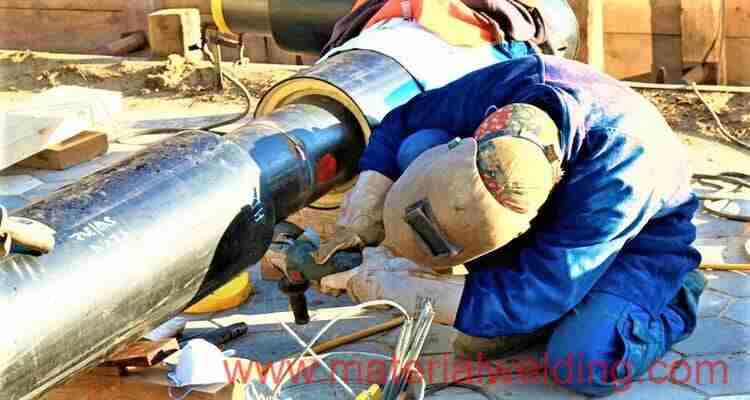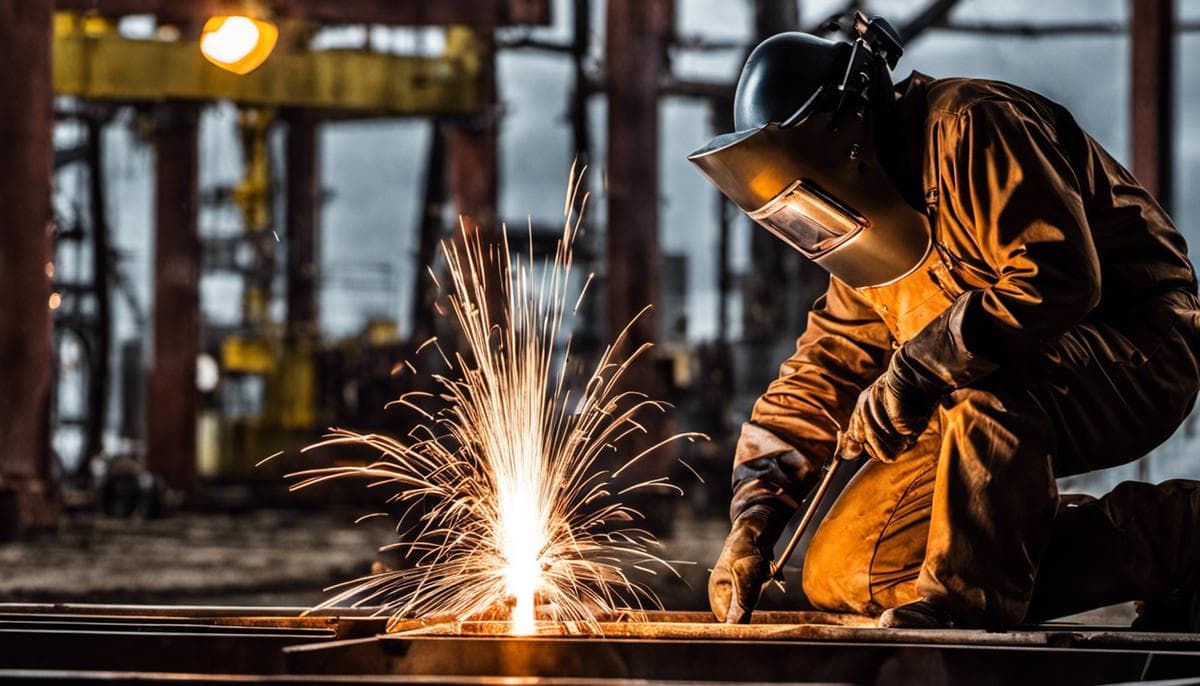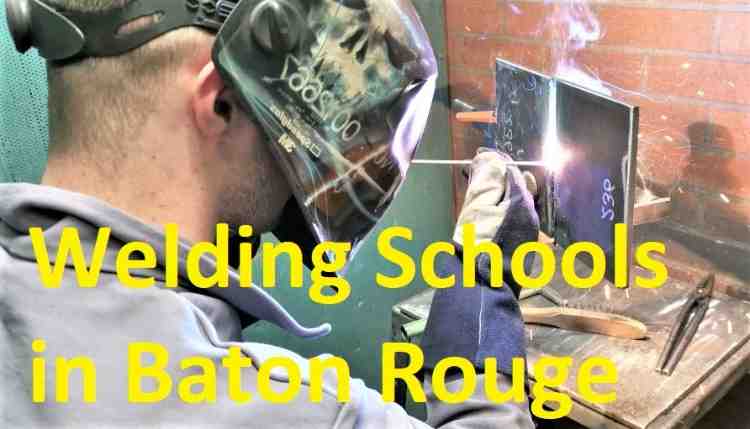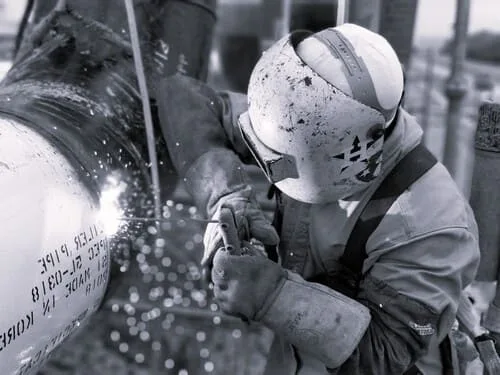Journeyman Welder
Welding is a profession that requires years of training and experience to master.
Becoming a journeyman welder or also called Journeyperson is an important milestone in the welding profession, as it marks the point at which welders have achieved a certain level of skill and knowledge.
But what does it really mean to be a journeyman welder?
This article will explain what journeyman welders do, how to become one, and the benefits associated with becoming a journeyman welder.
We will also discuss the qualifications and certifications required to become a journeyman welder as well as the expected salary range for journeyman weldercareer path.
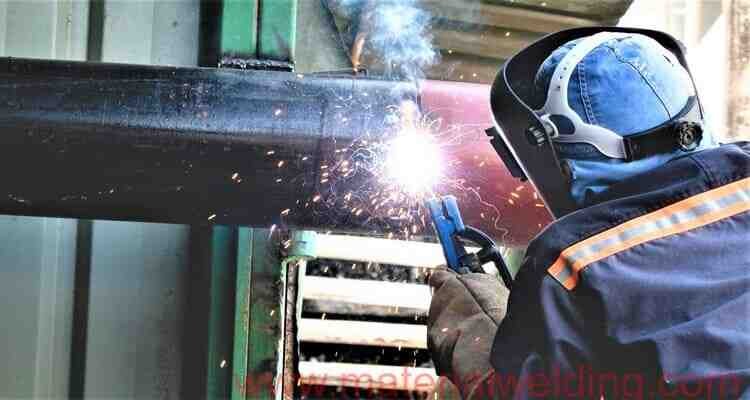
What is a journeyman welder?
A journeyman welder is a highly skilled, experienced welder. They are certified professionals in the welding industry, who have achieved a certain level of skill and expertise in their field.
Journeyman welders must have experience working with different kinds of metals, as well as knowledge and training for welding techniques such as shielded metal arc welding (SMAW), gas tungsten arc welding (GTAW), flux cored arc welding (FCAW), and gas metal arc welding (GMAW).
To become a journeyman welder requires extensive experience and specialized training.
It also requires taking tests from professional organizations like the American Welding Society or other certifying bodies.
The certification process includes both written tests and practical exams to demonstrate proficiency in various types of welding methods. Upon successful completion of the certification process, journeyman welders will receive documentation that recognizes their achievement.
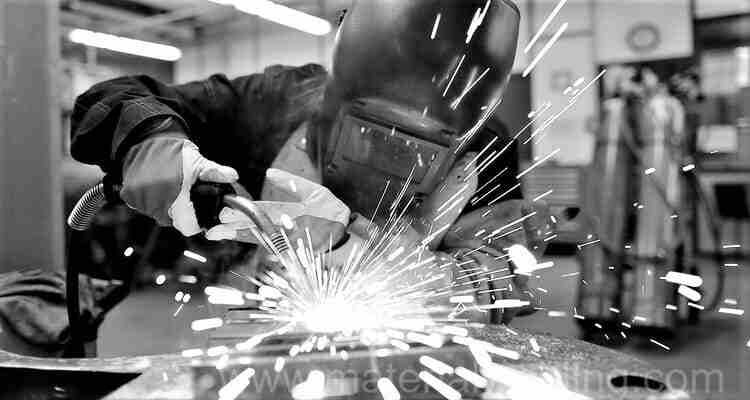
Journeyman welder salary
Journeyman welders are some of the most skilled in the trade, having achieved a level of experience and proficiency that requires certification.
As a result, journeyman welders have higher salaries than their apprentice counterparts.
What exactly is the average salary for a journeyman welder in the United States and Canada?
A journeyman welder salary can vary greatly depending on where you live in the United States and Canada.
In the US, welders typically make anywhere from $15 to $30 an hour depending on their experience, education, certifications and other qualifications. For those welders who are certified master welders or have special qualifications, wages may be up to $50 an hour.
In Canada, journeyman welders usually make between $20 and $40 an hour plus benefits. Journeymen with a higher level of qualification can often command even higher salaries of up to $60 per hour or more.
Factors that affect a welder’s wage include location, type of welding done and any additional certifications they may possess such as safety training or specialized welding techniques.
The Bureau of Labor Statistics reports that in May 2018, the median wage for a welder was $51,380- 60,000 per year or $23-30 per hour in the United States.
In Canada, this figure is roughly CAD$70,000 per year according to data provided by Payscale.com.
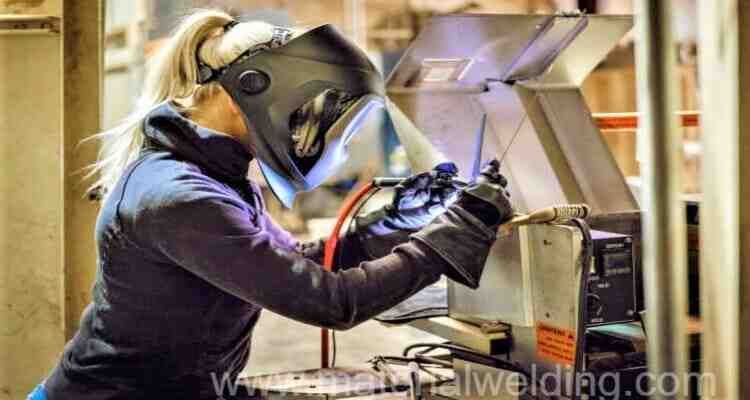
How to become journeyman welder?
Welding is an essential trade in the construction and manufacturing industries and becoming a journeyman welder demonstrates expertise in this craft.
Journeyman welders have achieved a certain level of skill and knowledge, making them highly sought after by employers. Here are some tips for how to become a journeyman welder:
- Take welding classes: Achieving journeyman status requires proof of mastery through formal education and apprenticeship programs. Taking Welding classes can help you gain the skills necessary to pass both certification tests and job requirements.
- Apprenticeship: An apprenticeship training program is a great way to gain expertise in a certain field. It combines on-the-job and in-school training, allowing individuals to obtain the necessary knowledge and skills for their desired profession. In Canada, an apprenticeship training program consists of on-the-job and in-school training. Generally, the timeframe to become competent in the trade of Welder is 6,000 hours (approximately three years) consisting of 5,280 hours of on-the-job work experience and 720 hours of in-school training.
- Become certified: To become a certified journeyman welder, you must take the American Welding Society’s (AWS) Certified Welder exam or obtain certification from the National Center for Construction Education & Research (NCCER). Certification proves that you possess the necessary knowledge to work as a professional welder.
- On-the-job experience: While having certification can open up doors, it’s not enough alone; you must also get hands-on experience working with various metals, tools and machines. This means seeking out apprenticeships or internships at local shops or companies that specialize in welding services.
How long does it take to become a journeyman welder?
It typically takes 2-4 years of on-the-job training and/or related education to become a journeyman welder.
Becoming a journeyman welder requires commitment, hard work, and dedication. It requires a combination of on-the-job training and formal education to become proficient in the trade.
The amount of time it takes to become a journeyman will depend largely on the individual’s specific route they choose to take.
For those looking to become skilled welders, the journey usually begins with an apprenticeship. Becoming a journeyman welder typically takes three to four years of classroom instruction and on-the-job training.
During this time, apprentice welders learn how to use different welding techniques and specialized tools while gaining knowledge of safety practices in the industry.
At the end of their training period, they must pass rigorous exams that demonstrate their skill level before they can be certified as a journeyman welder.
The length of an apprenticeship will vary depending on factors such as type of welding certification sought after and where you are taking classes or undergoing your training program.
Journeyman welder certificate
A Journeyman Welder certificate is a recognition of proficiency and competency in welding. It usually requires passing a written and/or practical exam, and having a certain amount of on-the-job training or experience. Requirements vary by state/province and industry.
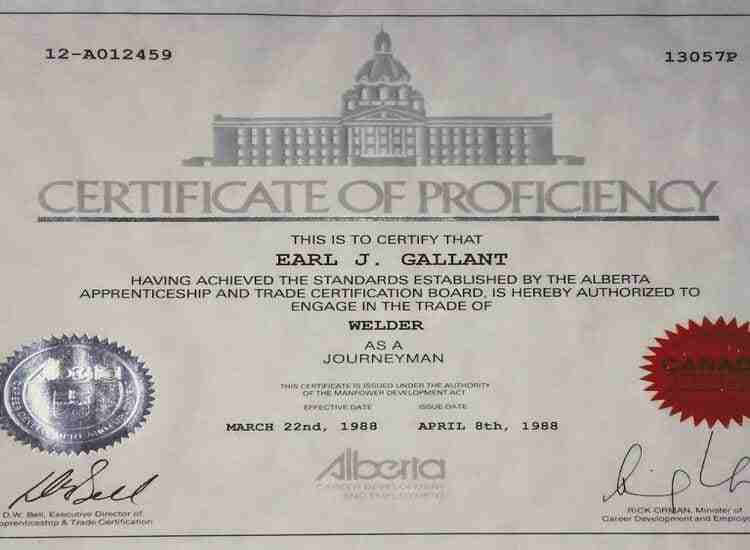
Journeyman welder vs helper
A journeyman welder and a helper are two different levels of welding positions. Journeyman welders are highly skilled, experienced professionals who have achieved certification in the welding field.
These individuals can work independently on complex projects, as well as provide mentorship to the next generation of welders.
Helpers are entry-level employees who assist journeyman welders with basic tasks such as cutting and preparing metal for welding, positioning material for fabrication and performing post-weld clean up.
The qualifications needed to become a journeyman welder vary by state or province but typically include a minimum amount of related experience along with an approved training program.
Additionally, many states require prospective journeymen to pass a performance test that demonstrates their level of expertise in the field.
Journeyman welder job description
The job description for a journeyman welder includes the following duties:
• Interpreting engineering drawings to determine the correct welding process.
• Operating manual and automated welding equipment to produce high-quality welds that meet customer specifications.
• Utilizing specialized welding equipment and techniques to join metal components together.
• Using a variety of tools such as electric arc welders, oxy-acetylene torches, plasma cutters, and more.
• Preparing materials for welding by cleaning, cutting, grinding or bending them as required
• Troubleshooting problems with machinery or faulty welds
• Performing routine maintenance on machines to ensure optimal performance levels
• Working safely with potentially hazardous materials like molten metals and gases
• Inspecting finished products for quality assurance purposes before shipment to customers.
Joining a union as a journeyman welder
Joining a union as a journeyman welder is an important step in a career path. It can provide protection and benefits that wouldn’t otherwise be available to welders.
With the right certification, welders may find themselves with more job opportunities, higher wages and better overall working conditions.
The first step when joining a union is to acquire the necessary qualifications to become a journeyman welder.
This includes completing courses or training programs in welding, safety and other topics related to the field.
Depending on where you live and work, certain certifications may be required for joining the union and gaining access to certain jobs or projects.
Once these qualifications are met, prospective welders can then apply for membership with their local labor unions that represent skilled tradespeople like welders.
